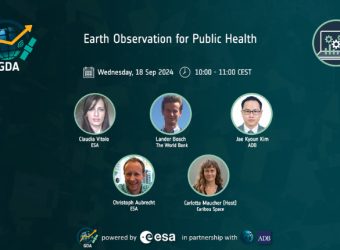Caribou Space published a new report titled “Adoption and Impact of Earth Observation for the 2030 Agenda for Sustainable Development”. This report, commissioned by the GDA team working at the European Space Agency, compiles practical Earth Observation use cases and impacts for developing countries.
Earth Observation (EO)—the process of gathering information about the physical, chemical, and biological systems of the planet via remote-sensing— provides unique datasets that enhance sustainable development programmes. It is particularly beneficial for development assistance organisations as EO can support Donors and IFIs processes for designing, mobilising, delivering, and closing/evaluating their programme.
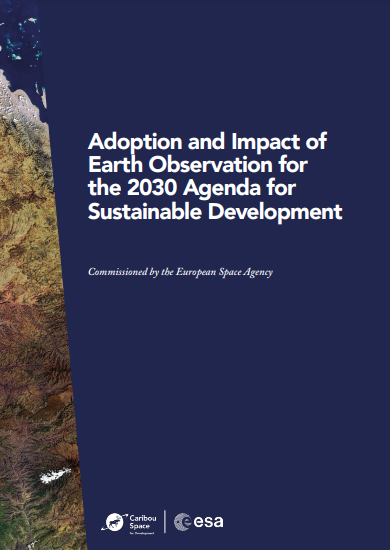
Based on the literature and on real cases taken from (but not limited to) the Earth Observation for Sustainable Development (EO4SD) initiative, the report explore various Earth Observation applications on different thematic areas (agriculture, forestry climate resilience, and disaster resilience, urban development) and focuses on benefits arising from using EO as a powerful source of environmental information.
The research findings within this report are expected to be of value to organisations in the development community who are interested in learning about the various use cases and impacts of integrating EO to advance their development.



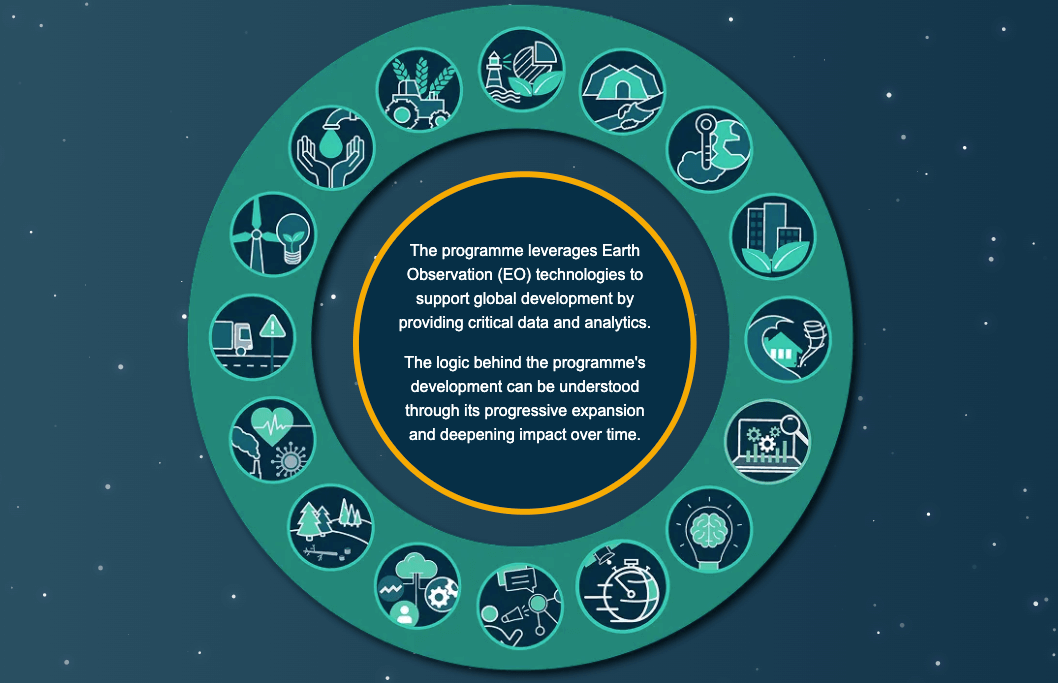



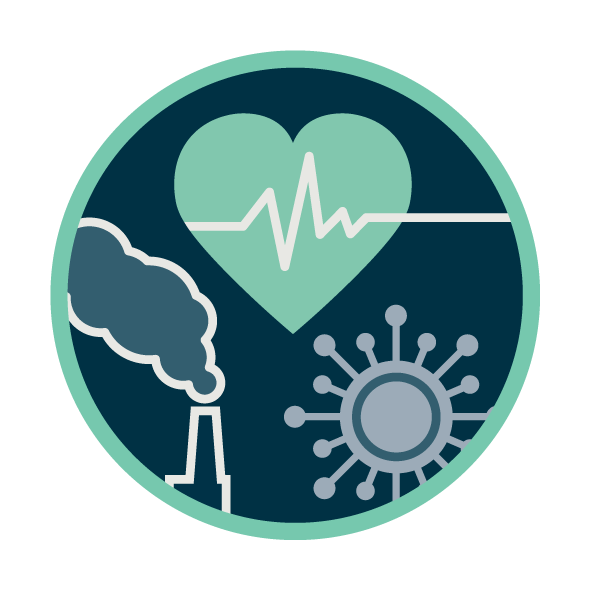

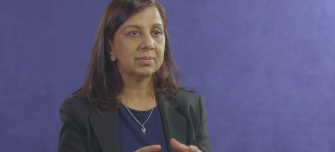

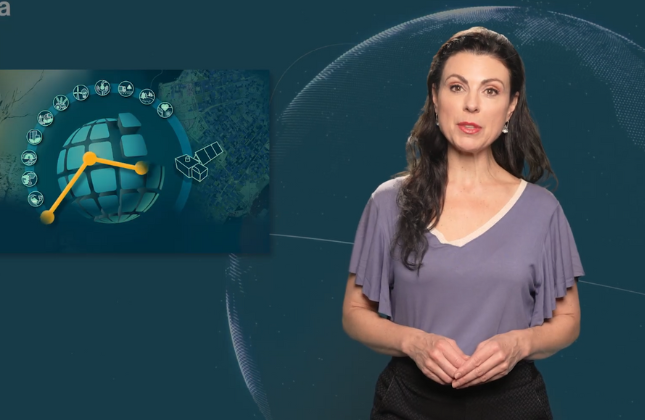
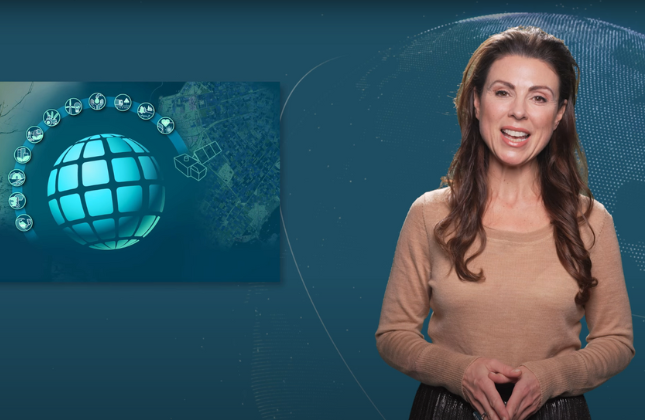
![[VIDEO] Space for IDA progress review film from Imperative Space](https://gda.esa.int/wp-content/uploads/2024/06/Imperative-Space-340x250.jpg)
![[VIDEO] ‘Wider Economic Benefits from Satellite EO in Developing Countries’](https://gda.esa.int/wp-content/uploads/2023/06/wider-card-340x250.jpg)
![[VIDEO] GDA M&E Webinar ‘Leveraging Development Finance – ADB’](https://gda.esa.int/wp-content/uploads/2023/06/banner-webinar2card-340x250.jpg)
